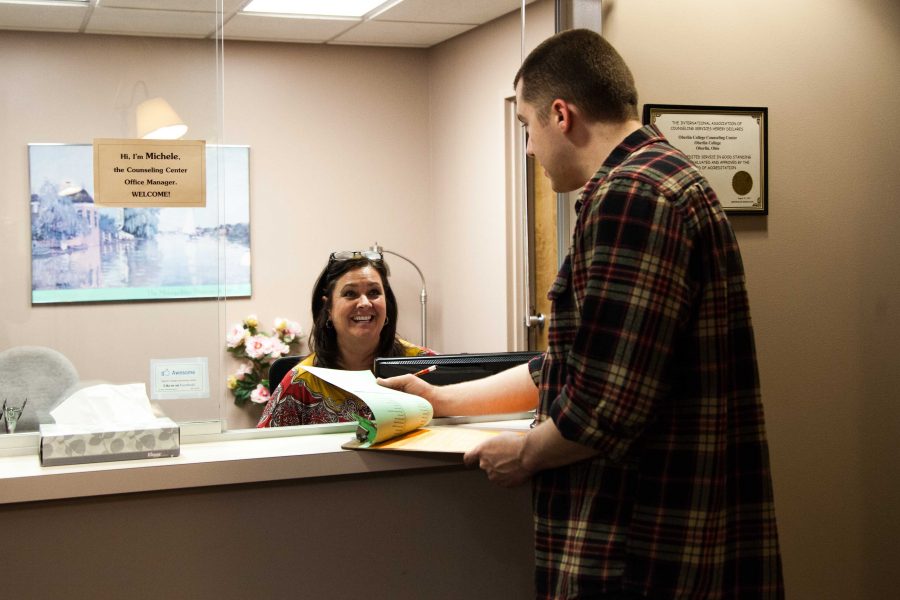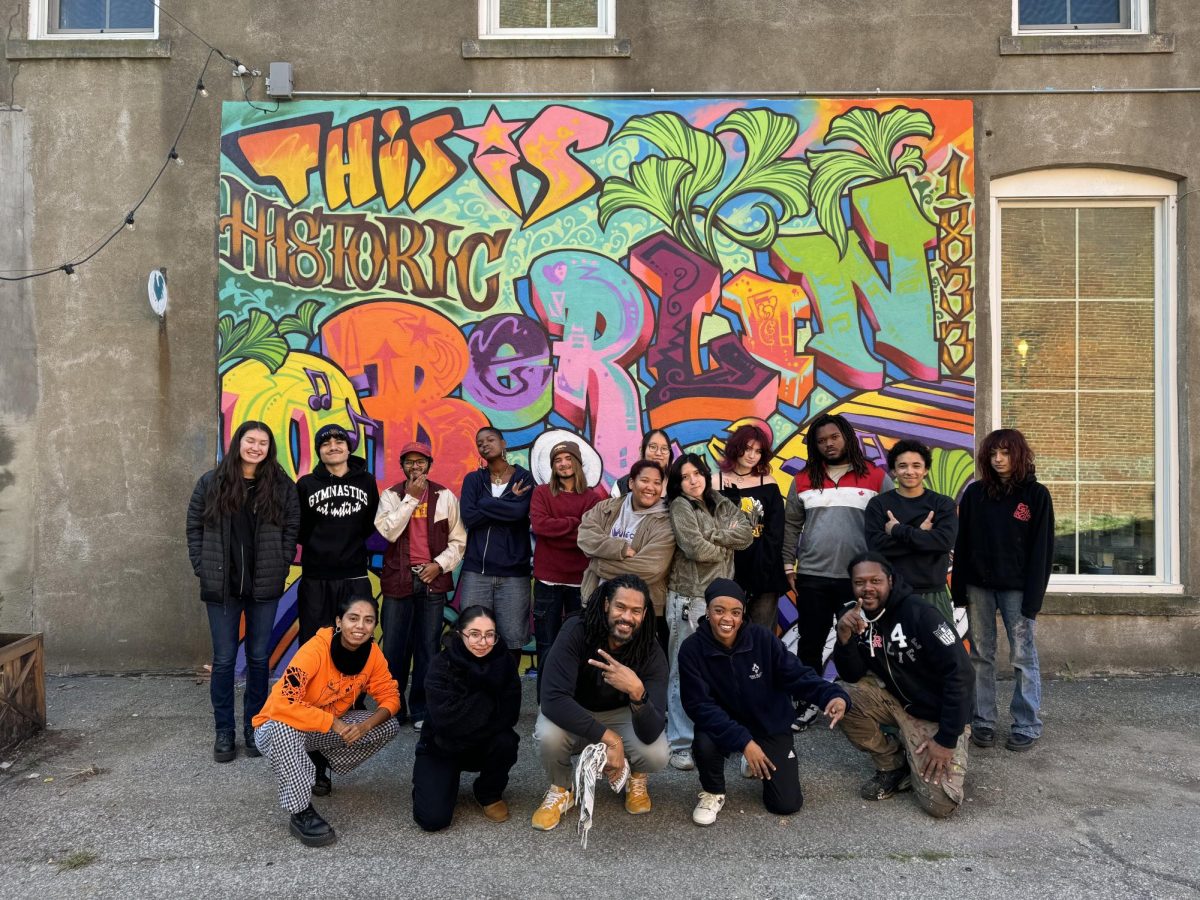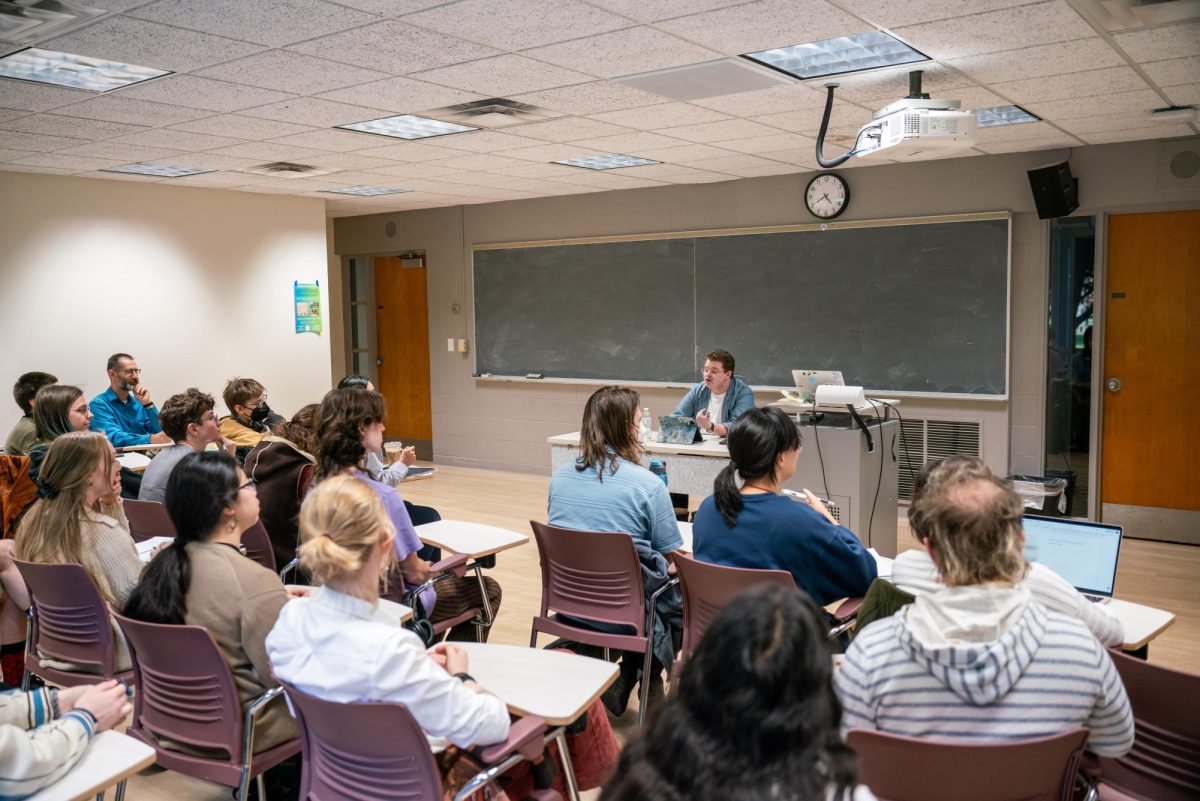Petition Proposing Student Health Relocation Circulates Campus
Office Manager Michele Spiroff talks to a student at the Counseling Center. Student Senate is gathering signatures for a petition to move Student Health Services and the Counseling Center to a more central location on campus.
April 29, 2016
In what could be the culmination of a year-long effort, student senators are attempting to rally support for their petition to move Student Health Services and the Counseling Center to a more central location on campus.
Student Senate’s Student Health Working Group issued the petition April 18 via Facebook and email. It states that the current location of Student Health Services and the Counseling Center “prevents these resources from effectively serving students.” At press time, 530 students and faculty members had signed the petition. The working group is hopeful that the petition will have support from the majority of Oberlin’s student body by the time it is presented to senior administrative officials at the end of the school year.
Members of the working group said the distance between the facilities and Oberlin’s main campus is simply too inaccessible for students who need immediate access to mental or physical health resources.
“For students in crisis, any barrier to accessing forms of support can often be too big of a hoop to jump through,” said Jeremy Poe, Student Senate liaison and double-degree junior. “It’s already easy to rationalize not asking for help, and students just aren’t getting the help they need.”
Students who may need professional services the most — those who are injured or too sick to walk, who struggle with depression, anxiety or other mental or emotional disorders or who are physically disabled — are often the ones who find it the most difficult to access the Centers, according to Poe.
Once presented, the petition will pass to senior faculty members and the Board of Trustees for review. If the administration elects to move forward with the petition, a new location for Student Health Services and the Counseling Center would need to be determined.
Students have suggested the Office of Admissions, located on the ground floor of Carnegie Building, as a possible site for the relocated facilities. The Office is slated to move to the new Lewis Gateway Center, and the College has not yet decided what to put in its place. A building like Carnegie, which also houses the Registrar and the Geology department, would help ensure confidentiality, a concern a number of students brought to Poe’s attention.
However, the cost of retrofitting an existing building to meet the needs of Student Health Services and the Counseling Center would be steep. In order to accommodate Student Health Services, a building would need a plumbing system that serviced every office space. Any Counseling Center location would require soundproofing for all consultation rooms.
Those kinds of renovations certainly add up, according to John Harshbarger, director of Student Health and Counseling Services.
“It makes a whole lot of sense for us to be more centrally located,” Harshbarger said, adding that the Counseling Center staff is largely in favor of the move. “But it might be more cost-effective to build a new building.”
Though the fiscal and spatial hurtles may prove too high for the proposal to clear, College President Marvin Krislov said the Strategic Plan Implementation Committee charged with reviewing campus facilities will consider the proposal.
“We have heard concerns about the Counseling Center’s location and take them very seriously,” Krislov said.
The 2016–2021 Strategic Plan states that over the next five years, the College and Conservatory will work to “develop new and enhance existing programs and services to support mental, emotional and physical health and wellness, including athletics and physical education and support for students with disabilities.”
However, Poe said some of the language in the plan — namely, that the College claims it has “built a strong support system for students” — could be misleading.
“We need to be putting more of our efforts into reforming support systems for students,” Poe said.
So far, the Counseling Center was visited by 675 students and scheduled a total of 3,650 appointments during the 2015-2016 school year. Last year, 710 students visited the Center for a total of 4,150 appointments. Over the past five years, Student Health Services has seen an average of 4,575 total clinic visits.
“We’re an incredibly well-used resource,” Harshberger said. “We would be really supportive of the move.”
In order to access the Center and Student Health Services, students often call Safety and Security for transportation assistance. Excluding the month of April, Safety and Security completed 268 trips to Student Health and the Counseling Center this year. This has sapped officers’ resources according to Marjorie Burton, director of Safety and Security.
“It’s draining us,” Burton said. “We’re happy to help, but we just don’t have that much time to spare.”
Burton, who oversees the two or three officers on duty during a weekday shift, said her office requested a shuttle that stops at Student Health Services and CVS in their most recent budget. Officers on duty can complete up to 39 transportations per
day, and any move to reduce that number would be welcome by her staff, Burton said.
Student Senate’s 2015 referendum shows that students largely support the move as well, with 90 percent of responders in favor of the relocation.
“This is something that needs to happen, that students have been saying needs to happen,” said College junior Dana Kurzer-Yashin, a member of the Student Health Working Group and Peer Support Center board. “The College needs to start listening.”
Kurzer-Yashin emphasized the need for the College to prioritize their institutional changes, putting the ABUSUA demands at the forefront and placing health and wellness reform high on the to-do list.
Poe, Kurzer-Yashin and the rest of the working group plan to submit the petition May no later than Commencement to ensure that graduating seniors are represented on the petition as members of Oberlin’s student body.



















